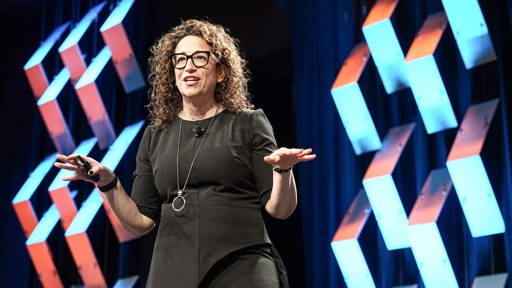Available through a single-view dashboard, these capabilities should provide actionable insights for patient-centric care, while also empowering patients and their families to make the best possible choices during the care journey. IntelliSpace Oncology debuted at the American Society of Clinical Oncology Annual Meeting (ASCO) in Chicago, Ill. (US), which brings together more than 30,000 oncology professionals from around the world.
The IntelliSpace Oncology decision-support solution aims at limiting information losses by incorporating all key patient and medical data in one location, to provide a clear, intuitive view of patient status that facilitates data-driven- clinical decision support. It also offers tools such as patient group analysis and predictive analytics on current and historical data and helps to provide multi-disciplinary oncology care teams with relevant patient information to enhance team-wide collaboration, communication and adherence to clinical guidelines.
Patients need to make many difficult choices about their treatment path and care, so having the ability to view all the relevant data is key to helping them make solid decisions along with their doctor. Via this capability, IntelliSpace Oncology promises to enable deeper patient involvement through personalized educational materials, access to status dashboards, patient-reported outcomes and satisfaction surveys, along with family and care giver support.
“It remains a real challenge to bring all the necessary information together in order to get a complete picture of the patient and make a good decision. Typically, the information is there but it’s not organized in a way that supports us during the decision making process,” says oncology surgeon Bert Bonsing, MD, PhD, of the Leiden University Medical Center. “New technologies can help us optimize how we work together as a team of specialists with the aim of giving the patient a therapy that’s as personalized as possible.”
Also,Philips signed an agreement with Memorial Sloan Kettering Cancer center. Both organizations will work together to develop new methodologies and informatics approaches for advanced precision diagnostics to help uncover the drivers for cancer at single-cell level. The results of the collaboration will be made available as research applications via the Philips platform to further strengthen next-generation genomic sequencing data methods, analysis and cancer research.
Information lost
Oncology is a complex medical domain, in which multiple disciplines must collaborate in order to reach accurate diagnoses and effective treatment plans. Unfortunately, information is frequently lost in communications between specialties and care networks, which can lead to critical information being missed.The IntelliSpace Oncology decision-support solution aims at limiting information losses by incorporating all key patient and medical data in one location, to provide a clear, intuitive view of patient status that facilitates data-driven- clinical decision support. It also offers tools such as patient group analysis and predictive analytics on current and historical data and helps to provide multi-disciplinary oncology care teams with relevant patient information to enhance team-wide collaboration, communication and adherence to clinical guidelines.
Data-driven insights
IntelliSpace Oncology also offers data mining and analytics capabilities that integrate a hospital’s cancer patient records. This gives clinicians an extensive patient database, Philips states, enabling them to compare their patients’ data with that of other patients who have similar characteristics in order to gain data-driven insights into treatment choices and the effects those choices have on patients’ quality of life.Patients need to make many difficult choices about their treatment path and care, so having the ability to view all the relevant data is key to helping them make solid decisions along with their doctor. Via this capability, IntelliSpace Oncology promises to enable deeper patient involvement through personalized educational materials, access to status dashboards, patient-reported outcomes and satisfaction surveys, along with family and care giver support.
Optimization guideline adherence
Philips IntelliSpace Oncology has been developed with the support of oncology experts at the Leiden University Medical Center (LUMC) in the Netherlands. Philips and LUMC are collaborating in an ongoing pilot study to test the use of IntelliSpace Oncology in colorectal cancer tumor boards, evaluating the impact on workflow efficiency and quality of personalized treatment decisions. During the pilot program, approximately half the doctors using the solution stated that it shortened the time spent reviewing each patient case. The program also showed further optimization of guideline adherence by 12 percent.“It remains a real challenge to bring all the necessary information together in order to get a complete picture of the patient and make a good decision. Typically, the information is there but it’s not organized in a way that supports us during the decision making process,” says oncology surgeon Bert Bonsing, MD, PhD, of the Leiden University Medical Center. “New technologies can help us optimize how we work together as a team of specialists with the aim of giving the patient a therapy that’s as personalized as possible.”
Teaming up with Navican
Prior to ASCO Philips announced it is teaming up with Navican, an Intermountain Healthcare Company, to accelerate the delivery of precision medicine to health Systems worldwide. The companies will work together on a new ‘turnkey’ approach to precision medicine that seeks to deliver Intermountain’s best practices into a streamlined service to be integrated at the point of care.Also,Philips signed an agreement with Memorial Sloan Kettering Cancer center. Both organizations will work together to develop new methodologies and informatics approaches for advanced precision diagnostics to help uncover the drivers for cancer at single-cell level. The results of the collaboration will be made available as research applications via the Philips platform to further strengthen next-generation genomic sequencing data methods, analysis and cancer research.








